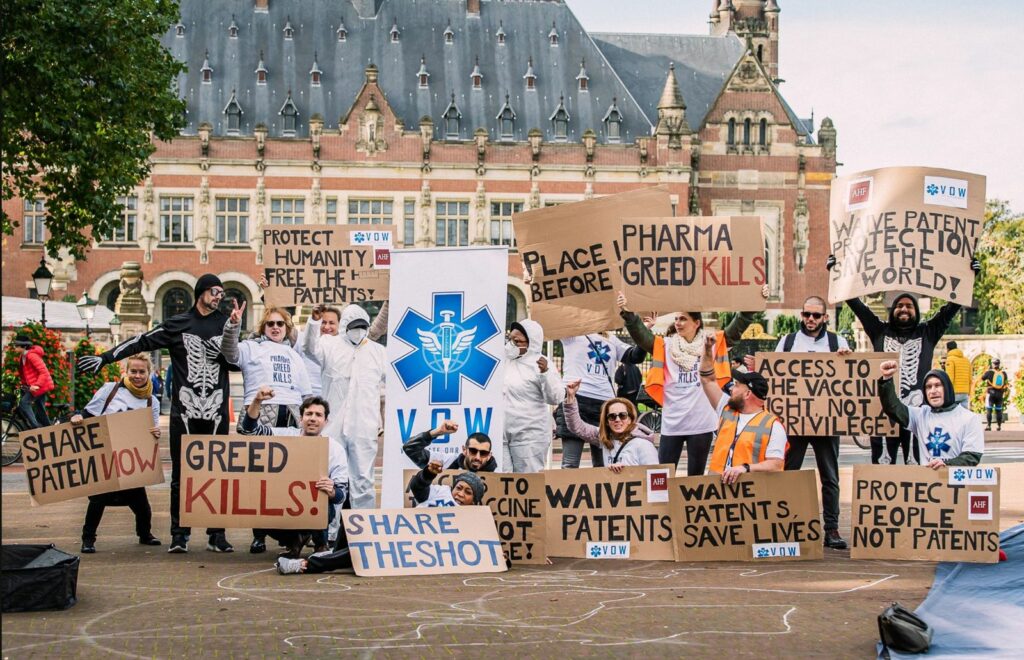This commentary originally appeared in the Brussels Times, and is available here.
The Pandemic Agreement negotiations began in December of 2021. Sufficiently motivated by the devastation brought by the COVID-19 global outbreak, member states of the WHO agreed to start negotiations for an international agreement to prevent, prepare for, and respond to pandemics.
At the heart of this decision was the overarching goal of addressing the unacceptable disparities in access to pandemic health products. Lack of access to products, as well as the failure to share vaccine manufacturing knowledge, led to millions of preventable deaths during COVID-19 because efforts to ensure equitable access to products were abandoned as soon as the vaccines were developed. According to Nature, vaccine hoarding alone is estimated to have cost more than one million lives, with a disproportionate impact in the Global South.
As negotiators enter the final round of talks in Geneva from April 7 to 11, they must resolve all remaining open provisions—chief among them are issues related to technology transfer, pandemic prevention, and the Pathogen Access and Benefit Sharing System (PABS)—each crucial for improving a global response to future pandemics and avoiding the lack of equity in access to pandemic products.
A central dispute that could derail the negotiations revolves around the word voluntary in defining technology transfer in the agreement. Germany has taken a hard line, explicitly insisting on limiting technology transfer to a “voluntary” gesture and on “mutually agreed” terms. This is a well-known industry position that was voiced during the talks by the European Commission on behalf of EU member states. It is a curious position because the text already specifies that parties involved in technology transfer do so on mutually agreed terms. Adding the term “voluntary” is, therefore, redundant but not without risks.
Defining technology transfer as voluntary only is unnecessarily restrictive and may have consequences beyond the scope of this agreement, potentially undermining the ability of all countries — including European countries — to use existing legal frameworks to ensure the transfer of technology. The use of this word also ignores the reality that, during the COVID-19 pandemic, voluntary sharing failed to materialize at the scale needed to avoid widespread inequities in access to life-saving health technology.

International law, such as the World Trade Organization’s Trade-Related Aspects of Intellectual Property Rights (TRIPS) Agreement that sets out obligations for countries on the protection of intellectual property, explicitly allows for measures, including non-voluntary measures, necessary to protect public health. Insisting now on the condition that such measures have to be voluntary runs the risk of being especially harmful to low- and middle-income countries, which are particularly susceptible to being pressured by Western nations not to use flexibilities of the TRIPS Agreement to gain access to technologies.
Given that Germany and other high-income countries have explicitly recognized the necessity of non-voluntary technology transfers in national legislation, it seems hypocritical to seek to prevent others from using such measures. Germany’s “Act on the Protection of the Population in Case of an Epidemic Situation of National Significance,” adopted in the early days of the COVID-19 outbreak, for example, explicitly facilitated compulsory licensing of patents to gain access to products needed to combat COVID-19. The proposed regulation for EU-wide compulsory licensing in emergencies explicitly acknowledges the need to be able to compel the transfer of know-how.
To reconcile the differing positions in the negotiations, proposals have been made either to define technology transfer solely for the purposes of the obligations within this agreement, clarifying that it does not affect other measures countries can take, or to adopt language such as “mutually agreed,” consistent with language already used in international instruments like the Framework Convention on Tobacco Control and the TRIPS Agreement.
While it remains unclear whether Germany and other EU countries would accept these compromises, risking the collapse of negotiations over the inclusion of a single word would elevate narrow pharmaceutical interests above global equity, public health priorities, and even Europe’s own strategic national interests during health emergencies.
Guilherme Ferrari Faviero, Esq., MS, MPH, Director, AHF Global Public Health Institute | INB Relevant Stakeholder Representative, AHF Brazil
Ellen’ t Hoen, LLM, PhD, Director, Medicines Law & Policy
